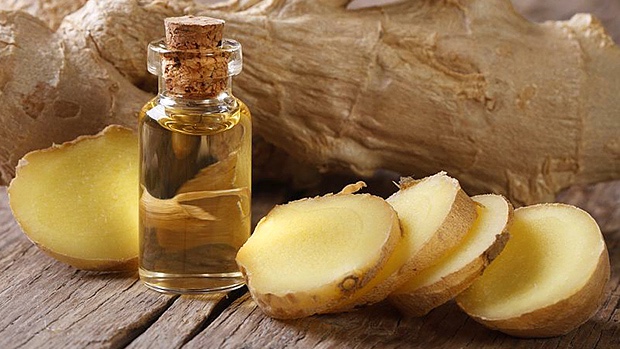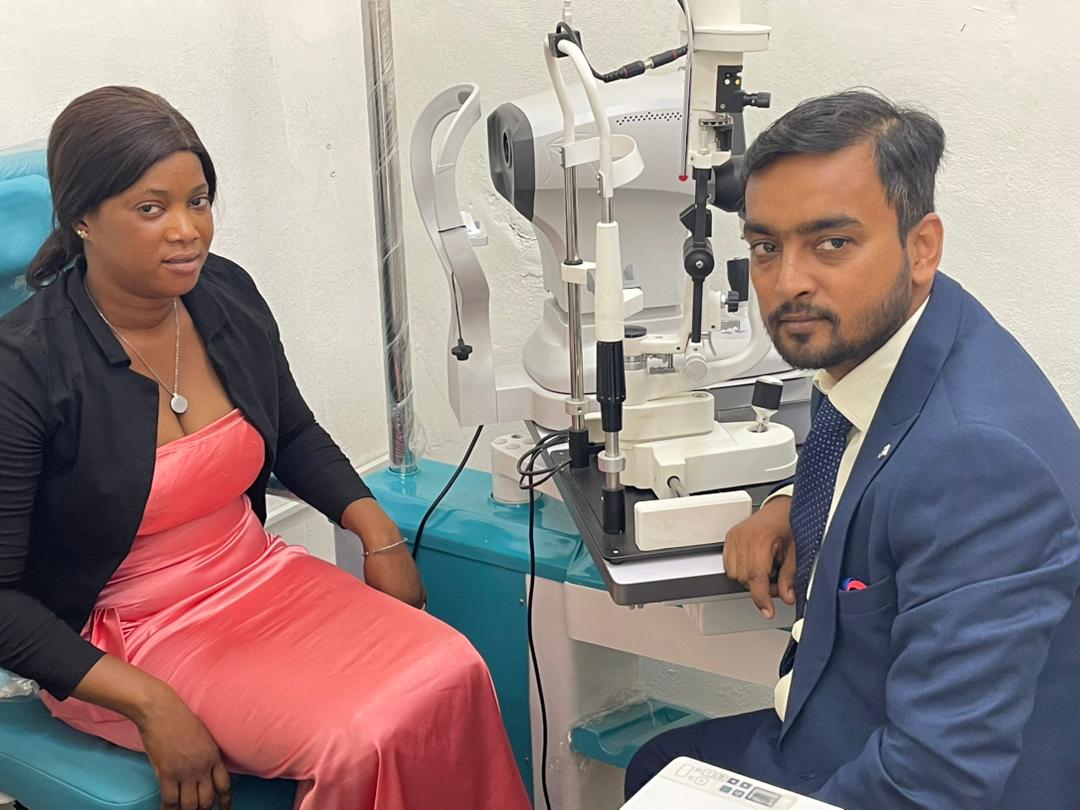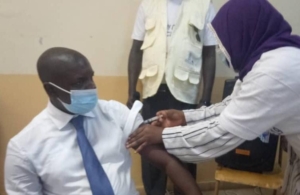By Prof. Raphael Nyarkotey Obu
It is amazing to see how medicine can work with Mother Nature to derive the modern-day treatments we rely on for a good quality of life.
Ginger is particularly powerful and can alleviate many different types of pain. Ginger’s anti-inflammatory properties can also provide relief to those suffering from joint pain caused by conditions such as osteoarthritis, making it a natural and accessible option for pain management treatment.
What makes ginger effective?
Ginger contains two active compounds that work together to fight inflammation. These are gingerols and shogaols, the latter being the more effective of the two and found primarily in dried ginger. The root is highly popular in Asian cuisines and many have found its use to be effective in fighting inflammation, osteoarthritis, and rheumatism.
To date, studies exploring ginger’s potential as an effective treatment for arthritis have had mixed outcomes. However, in this article, I explore both human and animal studies in this area.
The Science
One human study by Bliddal et al.(2000) showed that ginger extract was as effective as ibuprofen(Advil) in the first treatment period of a cross-over study. Fast forward, Rondanelli et al.(2016) also showed that ginger and echinacea supplements effectively reduced inflammation and pain after knee surgery.
A previous study by Altman et al.(2001) revealed that more concentrated doses of ginger extract were effective in treating people with osteoarthritis of the knee. Before this research, the participants had moderate-to-severe knee pain. Consuming ginger extract was able to reduce knee pain upon standing and after walking. The side effect was normal except for mild abdominal discomfort.
A rats study by Thomson et al.(2002) found that ginger could relieve joint pain from rheumatoid arthritis. The threshold was using ginger at high doses for four weeks.
Another human study by Black et al.(2010) found that ginger was an effective pain reliever for human muscle pain that comes from an exercise-induced injury. In this study, those who tooktwo grams of either raw ginger or heated ginger had reduced pain and inflammation. Heat-treated ginger was believed to have a stronger effect, but both types of ginger were found to be similarly accommodating.
Another human study by Amorndoljai et al.(2015) shows thatginger extract was useful in osteoarthritis in knees when applied topically. In this study, those who applied ginger extract three times per day for 12 weeks had reduced levels of pain and other symptoms. This means ginger cream or gel is helpful in osteoarthritis.
Bartel et al.(2015) review concluded that ginger was “modestly effective and reasonably safe” for people with osteoarthritis. An analysis of data from 593 people showed that those who used ginger had a 30% greater reduction in pain than those who used a placebo. However, the ginger group was more than twice as likely as the placebo group to stop using the treatment.
A recent review by Rondanelli et al.(2020) found that four eligible randomized controlled trials (RCTs) suggested a reduction of inflammation after oral and topical ginger administration. Regarding knee osteoarthritis, nine RCTs agree in stating that oral and topical use of ginger seems to be effective against pain, while others did not find significant differences. One RCT considered the use of ginger in migraine and suggested its beneficial activity.
Finally, one RCT evaluated the effects of Swedish massage with aromatic ginger oil on chronic low back pain (CLBP) anddemonstrated a reduction in pain. The use of ginger for its pain-lowering effect is safe and promising, even though more studies are needed to create a consensus about the dosage of ginger useful for long‐term therapy.
Dosages
Though consensus on dosage is yet to be reached, Bliddal et al.(2000) used
• 170 mg capsules of ginger extract
The second human trial used 250 mg of ginger capsules and the third human trial used 255 mg of ginger capsules.
Ginger comes in capsules, tinctures, teas, powders, oils, and foods made from the dried or fresh root of the plant. I prefer making tea from a high-quality ginger powder and I have seen it works in clinical practice.
For arthritis, experts recommend about 250 mg of ginger three or four times a day. Although that’s less than what’s used in studies, it’s best to start with a smaller dose, maybe 200 mg a day, and go up gradually. Don’t take more than four grams (4,000 mg) a day.
Studies of ginger and rheumatoid arthritis (RA) used a daily dose of 1,200 mg and 1,500mg of ginger.
Take Home
Ginger can reduce the activity of several chemical substances that promote joint inflammation. Results from RCTs assessing its role in treating participants with osteoarthritis found that it has a high safety profile and can have moderately beneficial effects in reducing pain and disability.
For the ladies, Ozgoli et al. (2009) human study discovered that ginger has also been known to work just as effectively as over-the-counter pain relievers containing mefenamic acid and ibuprofen for menstrual cramps. The study compared the effects of ginger, mefenamic acid, and ibuprofen on women who experienced primary dysmenorrhea. If you experience intense menstrual pains, including ginger in your diet days leading up to your menstrual cycle and at the onset of your period may give you some relief.
NB:
Prof. Nyarkotey has strict sourcing guidelines and relies on peer-reviewed studies, academic research institutions, and medical associations to justify his write-ups. My articles are for educational purposes and do not serve as Medical advice for Treatment. I aim to educate the public about evidence-based scientific Naturopathic Therapies.
Prof. Raphael Nyarkotey Obu is a professor of Naturopathic Healthcare. E-mail: professor40naturopathy@gmail.com. More about me, visit-profnyarkotey.com
References
1. Bliddal H, Rosetzsky A, Schlichting P, Weidner MS, Andersen LA, Ibfelt HH, Christensen K, Jensen ON, Barslev J. A randomized, placebo-controlled, cross-over study of ginger extracts and ibuprofen in osteoarthritis. Osteoarthritis Cartilage. 2000 Jan;8(1):9-12. doi: 10.1053/joca.1999.0264. PMID: 10607493.
2. Rondanelli et al.(2016) The effect and safety of highly standardized Ginger (Zingiber officinale) and Echinacea (Echinacea angustifolia) extract supplementation on inflammation and chronic pain in NSAIDs poor responders. A pilot study in subjects with knee arthrosis. Natural Product Research.https://doi.org/10.1080/14786419.2016.1236097.
3. Altman RD, Marcussen KC. Effects of a ginger extract on knee pain in patients with osteoarthritis. Arthritis Rheum. 2001 Nov;44(11):2531-8. doi: 10.1002/1529-0131(200111)44:11<2531::aid-art433>3.0.co;2-j. PMID: 11710709.
4. Bartels et al(2015) Efficacy and safety of ginger in osteoarthritis patients: a meta-analysis of randomized placebo-controlled trials. DOI:https://doi.org/10.1016/j.joca.2014.09.024
5. Ozgoli G, Goli M, Moattar F. Comparison of effects of ginger, mefenamic acid, and ibuprofen on pain in women with primary dysmenorrhea. J Altern Complement Med. 2009 Feb;15(2):129-32. doi: 10.1089/acm.2008.0311. PMID: 19216660.
6. Thomson M, Al-Qattan KK, Al-Sawan SM, Alnaqeeb MA, Khan I, Ali M. The use of ginger (Zingiber officinaleRosc.) as a potential anti-inflammatory and antithrombotic agent. Prostaglandins Leukot Essent Fatty Acids. 2002 Dec;67(6):475-8. doi: 10.1054/plef.2002.0441. PMID: 12468270.
7. Black CD, Herring MP, Hurley DJ, O’Connor PJ. Ginger (Zingiber officinale) reduces muscle pain caused by eccentric exercise. J Pain. 2010 Sep;11(9):894-903. doi: 10.1016/j.jpain.2009.12.013. Epub 2010 Apr 24. PMID: 20418184.
8. Amorndoljai P, Taneepanichskul S, Niempoog S, Nimmannit U. Improving of Knee Osteoarthritic Symptom by the Local Application of Ginger Extract Nanoparticles: A Preliminary Report with Short Term Follow-Up. J Med Assoc Thai. 2015 Sep;98(9):871-7. PMID: 26591397.
9. Rondanelli M, Fossari F, Vecchio V, Gasparri C, Peroni G, Spadaccini D, Riva A, Petrangolini G, Iannello G, NichettiM, Infantino V, Perna S. Clinical trials on pain lowering effect of ginger: A narrative review. Phytother Res. 2020 Nov;34(11):2843-2856. doi: 10.1002/ptr.6730. Epub 2020 May 20. PMID: 32436242; PMCID: PMC7754412.




